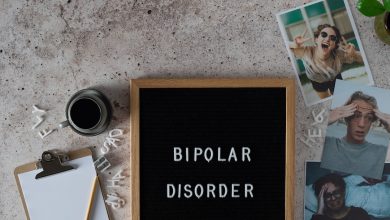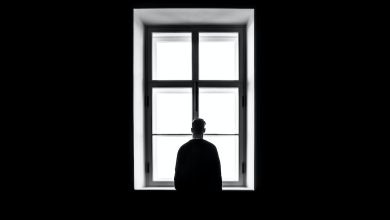
Avoiding comparing yourself to others is difficult. We all compare ourselves with others in the work environment, educational environment, virtual space, etc. This can have a very negative impact on our mental health and our view of ourselves. It has probably happened to you that you have said to yourself: “I will never be as good as so-and-so.” This seemingly simple and unimportant sentence makes you suggest to yourself that you will never be as good as others. This issue will soon cause self-hatred to take root in you.
The feeling of self-loathing, especially if you already have mental problems such as anxiety or depression, can cause mental pressure and tension. Here, we will introduce you to the cause, signs, and methods of dealing with self-hatred.
What is the cause of self-hatred?
When you’re feeling self-loathing, it’s hard to identify why and how you got here. You may have felt this way for as long as you can remember, or it may have developed over time. In the following, we will discuss some of the causes of self-hatred.
1. Your way of thinking about yourself is highly critical.
You hate yourself because you criticize all aspects and characteristics of yourself. You hate yourself, so obviously, you constantly criticize yourself. Self-criticism has two reasons. You may hate your face, ignorance, or other characteristics, or it may have an external cause. It means that someone has said negative words to you.
You may think you are ugly and feel that others do not like you. That’s why you wish you were more beautiful. Every time you make this wish, the idea that you are ugly is reinforced in your mind. Finally, you can no longer accept your true self, so you constantly criticize yourself in every way.
2. Someone bullied you in the past.
A person who has been bullied in childhood will suffer from mental problems as an adult. Of course, it is clear that bullying does not only happen in childhood and at school but also happens at work, in friendships, among family members, etc. Even after the period of bullying has passed, the adverse effects of this issue remain and affect your confidence and self-esteem.
3. You have experienced an unpleasant incident in the past.
Sometimes in life, we encounter terrible events that change us forever. These unfortunate events include car accidents, natural disasters such as floods and earthquakes, job loss, rape, etc. After these events, you will not return to the person you were before and will not like the person you see in the mirror.
You may be asking yourself, “Why me? What did I do wrong to deserve these problems? You probably think that you must have done something wrong and are being punished in this way. This reinforces your self-loathing.
4. You have done something wrong before and now regret it.
We have all had the experience of doing something and regretting it later. But if you have done something wrong before and now regret it and look at your work with shame and hatred, you will feel self-loathing. Have you abused others? Have you hurt anyone? Have you lied and cheated? All this makes you hate yourself for doing such shameful things.
What are the signs of self-loathing?
If you’re not sure if you feel this way, look for the following common symptoms:
1. Undereating or overeating.
Many people with self-loathing punish themselves with food, either by not eating enough or too much. People who don’t eat enough often feel like they don’t deserve to eat. These people deprive themselves of everything except the foods they dislike to somehow punish themselves for even being alive.
People who overeat also do it to feel shame and embarrassment later. In fact, overeating for these people is a reason to humiliate themselves.
2. Lack of attention to physical condition.
People who suffer from self-loathing may stop bathing, brushing or combing their hair, changing clothes, etc. These people do not pay attention to their physical appearance and even neglect to pay attention to their hygiene.
They do this not because they don’t care about their appearance but because they think they don’t deserve to look and feel good.
3. Defeatism.
“Why should I try? I will fail in the end! I fail at this. I will not succeed.” These are the sentences that people who hate themselves keep repeating to themselves. These sentences reinforce feelings of shame and self-hatred.
Such negative statements also prevent these people from participating in activities that might lead them to succeed because they have already convinced themselves that they will fail at anything.
4. Sacrifice yourself.
People who suffer from self-hatred, either to punish themselves for various reasons or to find value in the eyes of others, usually sacrifice themselves in multiple ways. Since these people cannot bear the feeling of pride and honor, they try to do things to make others feel sorry for them, and for this, they sacrifice themselves, even if they get hurt.
5. Unnecessary and excessive spending.
When you hate yourself for various reasons, you try to find happiness by acquiring material things. You may overbuy, hoping the new stuff will make you happy instead of embarrassed and self-loathing. Some people may spend much of their money on others to prove they are worth being loved.
Practical tips for dealing with self-loathing.
If you also have feelings of self-loathing, you can use the following recommendations to fight this feeling and gradually like yourself.
1. Pay attention to the triggers.
The first step to identifying any problem is to find out its root. Self-loathing is very hard to bear, so you should determine the cause of this feeling. It may be straightforward and cliché, but writing down daily events can be very useful. Sit in a corner and mentally review your moods and emotions. Try taking notes on the following:
- What did you do during the day?
- How did you feel while doing different activities?
- Who did you hang out with during the day?
If, for some reason, you can’t take notes, you can make short videos of daily events or, with a vise, record events from the past. Whatever you record events, consider factors that help you identify negative thought triggers.
Once you recognize some triggers, you can think of ways to avoid or minimize them. You may be unable to prevent some of these triggers; in such cases, you can control them with some strategies.
2. Manage your negative thoughts.
If you feel self-loathing, you should question and answer with yourself. If you say to yourself, I hate myself, ask yourself why. If you say that I look ugly or did not perform well in a work meeting, try to challenge these thoughts. Repeat to yourself: This is not true. Then look for reasons to prove your way of thinking is wrong.
Dealing with your negative thoughts can be difficult, but you should try to fight them slowly. Challenging negative thoughts can reinforce the notion that self-loathing is not an undeniable fact but just a feeling.

3. Spend time with people who make you happy.
Self-loathing makes you want to be alone all the time. You may feel you don’t deserve to be with your friends and family. Or you may think that no one wants to be with you. You might think that cutting yourself off from being around others is the best thing you can do, but studies show otherwise.
Connecting with others is a big part of our mental health because social connection helps us feel better about ourselves. Communicating with others provides an environment to feel valued and cared for.
The best way to combat negative thoughts is to spend time with people you love, like friends and family. Go out with them, watch movies, take walks, and talk to each other.
4. Learn to accept compliments from others about yourself.
When you hate yourself, you can hardly accept the compliments of others. You may not even feel good when others compliment you.
Learning to accept others’ definitions is a time-consuming but possible process. This process takes practice. For starters, the next time someone compliments you, say thank you and don’t say anything else. Stop yourself, don’t answer negatively, and accept the definition of others.
5. Have compassion for yourself.
People who suffer from self-hatred, usually have no love and affection towards themselves and are not sympathetic to themselves in any way. In fact, it seems strange and impossible for these people to like and love themselves.
A great way to develop self-compassion is to consider how you treat the people you love. Do you reprimand them when they make mistakes or remind them that no one is perfect? Instead of judging and criticizing yourself for your flaws without compassion, be kind to yourself and deal with your failures.
6. Forgive yourself.
Self-loathing is usually caused by an unpleasant event or feeling in the past, such as shame, anger, guilt, or powerlessness. In such situations, forgiving yourself or accepting your true self is impossible.
Do your best to live in the moment and consider how far you’ve come from the past to the present. This may seem strange and different to you, but over time it will help you reduce your self-hatred and develop a sense of compassion and kindness towards yourself.
7. Get help from a specialist if needed.
Always remember that you are not the only person dealing with this feeling. Different people have different mental problems. It is better to use the ideas that we have introduced in this article to combat the sense of self-loathing under the supervision of a professional and reliable expert.
Be bold and seek help from an expert. In fact, this is the best way to learn how to manage your self-hatred and negative thoughts. Before you see a specialist, answer the following questions:
- What problems do you want to discuss with the specialist? The answer to this question may or may need to be clarified.
- Are you looking for a specific feature in the specialist? For example, are you more comfortable with someone of the same sex as you?
- How much can you realistically charge per treatment session?
- Do therapy sessions not interfere with your work schedule? Do you need a specialist to see you on a specific day?
After answering these questions:
- Prepare a list of qualified specialists with offices near your home.
- Choose the specialist you want.
- Go to your treatment sessions regularly and follow the recommendations of the specialist.
Self-loathing is one of the worst feelings anyone can have. Instead of repeating to yourself every day and every moment that you hate yourself, tell yourself, “I will do my best to do better tomorrow.” Do you also suffer from self-hatred? What do you do to deal with this feeling?
What is self-loathing?
Self-loathing is a negative emotional state where individuals consistently view themselves in a critical and unkind manner. This can lead to feelings of hatred towards oneself and can have a significant impact on mental health.
What are some causes of self-loathing?
Causes of self-loathing can include a highly critical way of thinking about oneself, past experiences of bullying, unpleasant incidents in the past, and regret over past wrongdoings.
What are the signs of self-loathing?
Signs of self-loathing can include undereating or overeating, lack of attention to physical condition, defeatism, self-sacrifice, and unnecessary and excessive spending.
How can one deal with self-loathing?
Dealing with self-loathing can involve identifying triggers, managing negative thoughts, spending time with people who make you happy, learning to accept compliments, having compassion for oneself, forgiving oneself, and seeking help from a specialist if needed.
How can identifying triggers help in dealing with self-loathing?
Identifying triggers can help in dealing with self-loathing by allowing individuals to understand the root cause of their negative feelings. Once triggers are recognized, strategies can be developed to avoid or minimize them.
How can managing negative thoughts help in dealing with self-loathing?
Managing negative thoughts can help in dealing with self-loathing by challenging the negative self-perceptions and reinforcing the idea that self-loathing is not an undeniable fact but just a feeling.
How can spending time with loved ones help in dealing with self-loathing?
Spending time with loved ones can help in dealing with self-loathing by providing an environment to feel valued and cared for. Social connection helps individuals feel better about themselves.
How can having compassion for oneself help in dealing with self-loathing?
Having compassion for oneself can help in dealing with self-loathing by encouraging individuals to treat themselves with the same kindness and understanding they would offer to others they care about.
How can forgiving oneself help in dealing with self-loathing?
Forgiving oneself can help in dealing with self-loathing by allowing individuals to let go of past mistakes and feelings of guilt, shame, or powerlessness, and develop a sense of compassion and kindness towards themselves.
When should one seek help from a specialist for self-loathing?
One should seek help from a specialist for self-loathing if the feelings of self-hatred and negative thoughts persist and interfere with daily life, despite attempts to manage them. A professional can provide guidance and strategies to manage self-loathing effectively.







